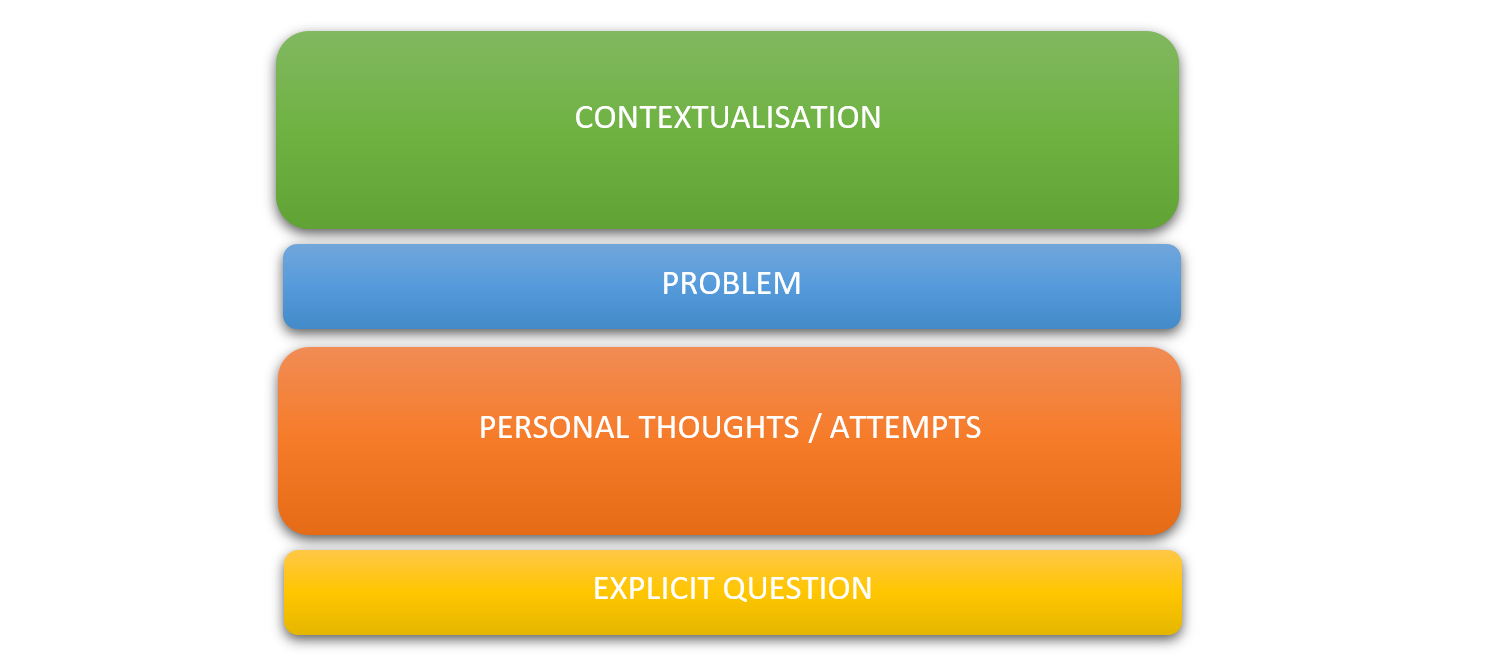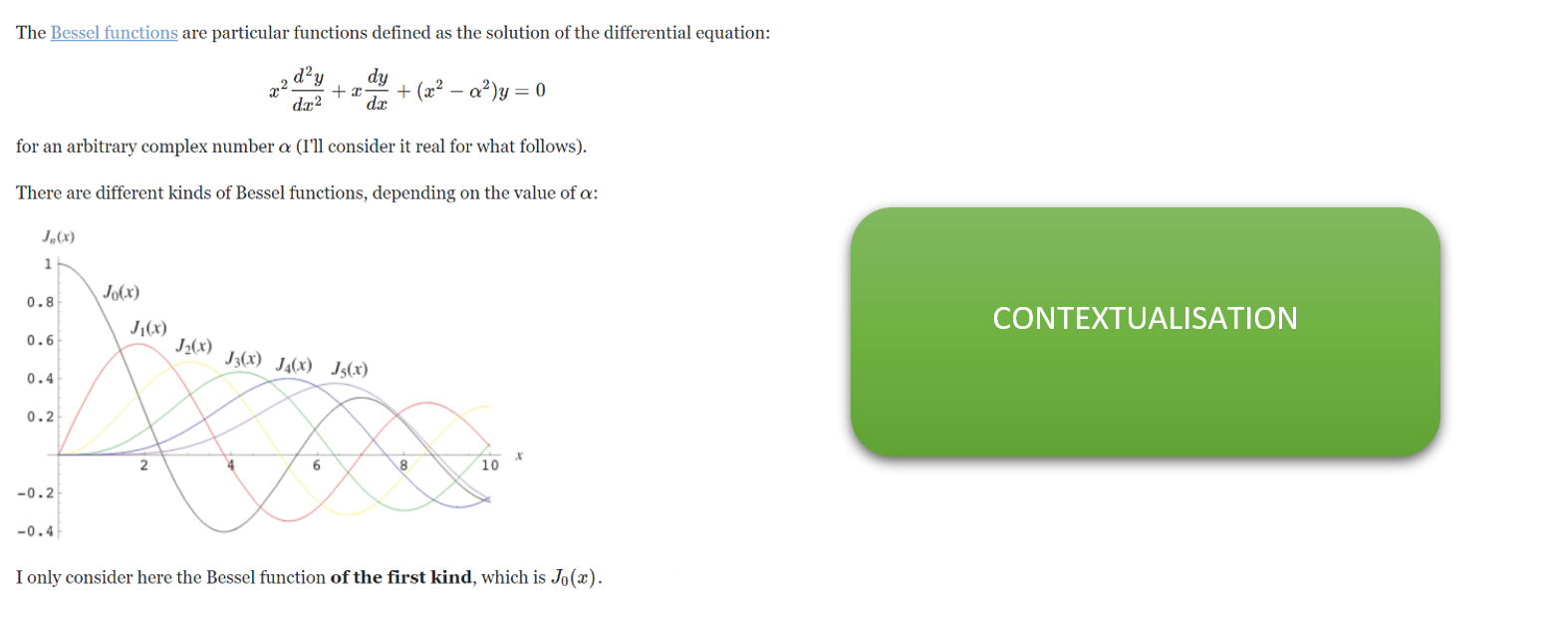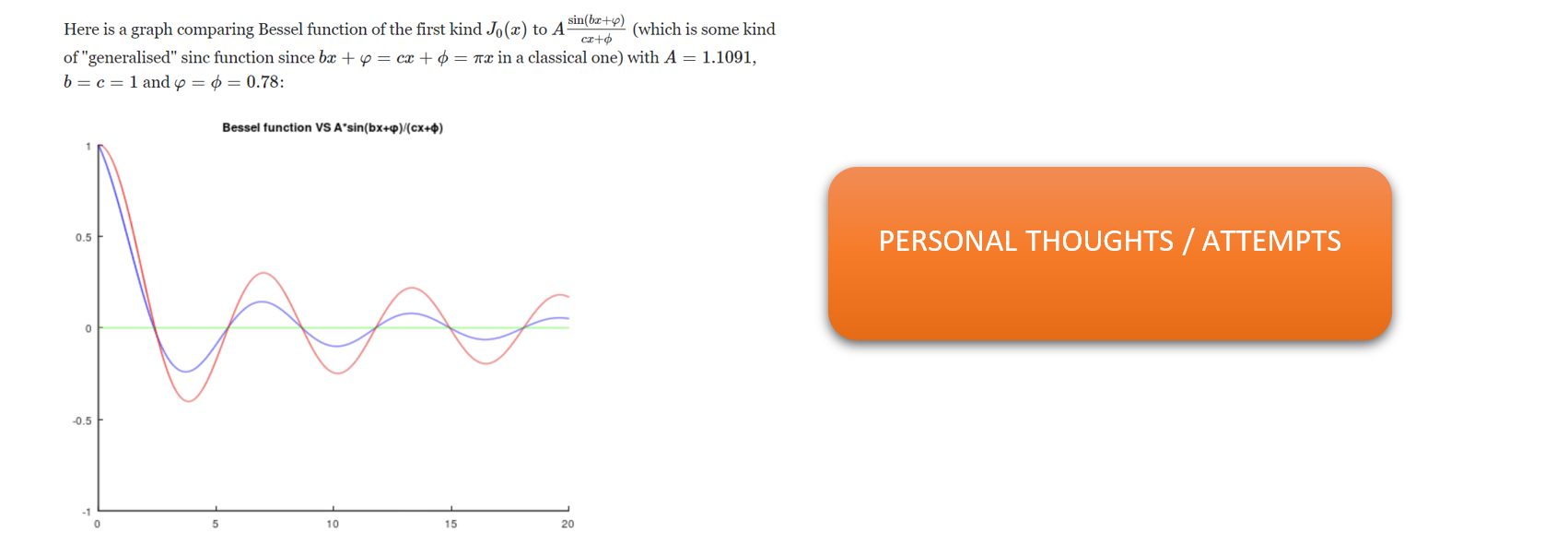Mean structure proposed
I am writing this post for new users who don't have the time to read the full article of how to ask a good question. In this post, I will give my opinion of what structure beginners should follow to ask well-received question, based on my personal experience of new user in Math Stack Exchange. I will write this post as concise and clear as possible.
I will use a concrete example of question of mine, which received initially 3 downvotes and was closed. After asking for some advice on the meta, I edited my question several times. After that, it received 3 upvotes and has been reopened.
Contextualisation
This part is more important than you think. Most questions without contextualisation are poorly received.
In my example, I was studying the Bessel functions. Everything about it was clear to me, but a short summary was necessary. Indeed, remember that many of us probably saw this a long time ago, and don't remember the subject as well as you do while you are asking it. People who answer questions here do it for free. They are making you a favor, so they are not the ones supposed to do additional research for you. Putting a small summary will only take you 5 minutes, and considerably rise your chances to get upvotes. Don't hesitate to add pictures and external links (to Wikipedia, for instance).
Problem
Writing explicitly your problem before the moment you ask your question is a good way to introduce it.
If you don't start talking about your problem in the middle of your question, the readers could get bored, especially if the question is long. If they do, they may skip your next paragraphs until the question at the end. Note that your problem should correspond to the title of your question. Remember that the question you write should stay clear without your title, which thus must also be included in your post. Right after the contextualisation is the perfect place for it.
Personal thoughts / attempts
Questions "do my homework for me" style are poorly received. When your mouse goes under the "downvote" button, you can read that "this question does not show any research effort" is one of the first causes of downvote.
As people in Math Stack Exchange take quite a long time to answer you, they expect you to respect that time and show you tried to solve the problem on your own. That's why I showed in my post a personal attempt of solving my problem, illustrated by a graph. This section can be long, but doesn't need to.
Explicit question
An unclear question will not receive effective answers. The final question you are asking must be crystal clear.
Don't hesitate to put the final question in bold if necessary. This is the most important part of your post.
Conclusion
If you are in Math SE, you probably like maths. We are made to get along ! Again, this structure is the one I follow, and many users may not have the same opinion. However, if you follow it, you sould have no problem.
A last advice: don't hesitate to regularly edit your question if some users point out something wrong in the question. Be nice with them, if a strong change is needed do not modify the entire post, but write an "update" section instead. That's what I did at the end of the post I showed you.
Right... Where is the question here ?
Some of you may want to close this post because it's actually not a question. Note that "How to ask a good question" also isn't. If you really need me to ask a question here, maybe it would be: what do you think about the structure I proposed here ? Is it clear enough for new users ? How to improve this ?






some context | question (in bold) | more thorough context | problem statement (if applicable) | proof attempt | conclusionto make it easy for people to stop reading early. Is putting the explicit question at the bottom preferred? $\endgroup$